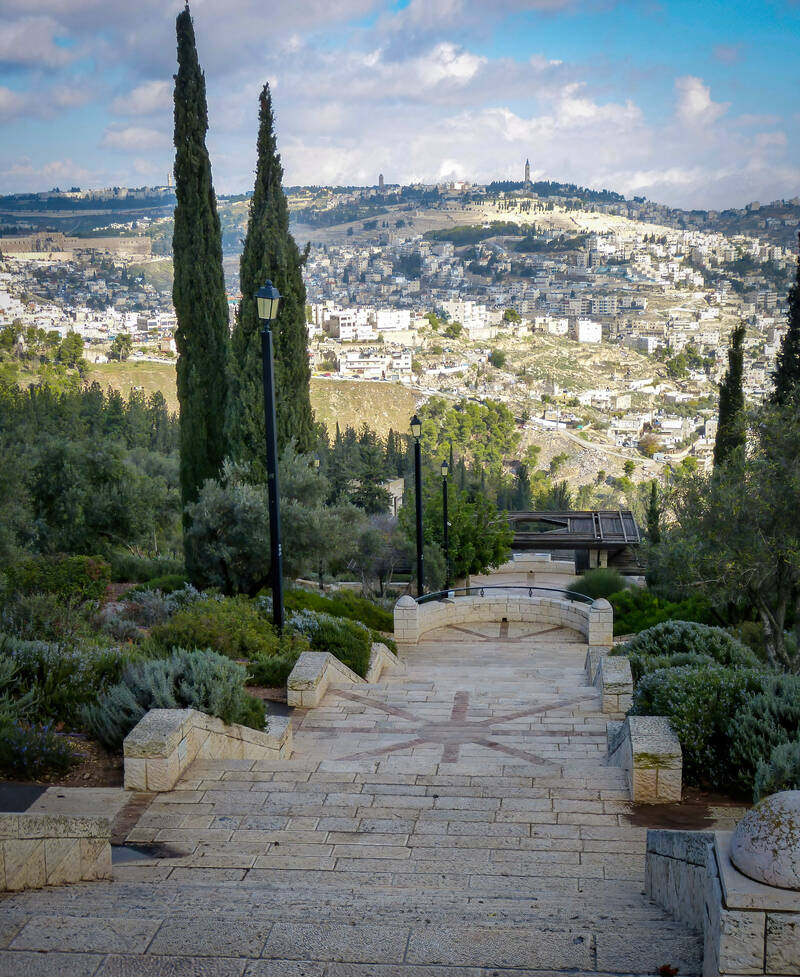The Turmoil in Israel
03/17/2023 10:54:04 AM
 View of Jerusalem from the Haas Promenade, photo by Julie Danan
View of Jerusalem from the Haas Promenade, photo by Julie Danan
For thousands of years Jews have been proocupied with law and the pursuit of justice, “Tzedak, Tzedek Tirdof.” (Justice, Justice shall you pursue, Deuteronomy 16:20). Right now, the modern state of Israel is roiled in a crisis of massive citizen protest over proposed changes to the Judicial branch and Bagatz, the Supreme Court of Israel.
Israel (in its fifth election in five years!) has elected the most right wing government in its history. The new government seeks to amend Israel’s “Basic Laws," which are legally equivalent to constitutional amendments. The proposed changes would grant Knesset lawmakers control over judicial appointments (currently made by a panel that includes members of all branches of government), eliminate judicial review of legislation and allow parliament to vote down Supreme Court decisions with a simple majority vote.
In opposition to these changes, there have been massive demonstrations throughout Israel over the past several weeks, with hundreds of thousands of people from different political and religious outlooks taking part. There have also been demonstrations by Israelis abroad, as well as appeals against the legislation by business leaders worried about foreign investment, and even hundreds of former security leaders speaking out to the president and defense minister about the implications of judicial changes to erode democracy.
I listened to a Webinar with Israeli author Yossi Klein Halevi, of the Shalom Hartman Institute in Jersualem, sponsored by several major American Jewish organizations. Klein Halevi is author of Letters to my Palestinian Neighbor.
Klein Halevi had co-authored "An Open Letter to Israel's Friends in North America," together with Matti Friedman and Daniel Gordis in the Times of Israel. These three thinkers, all of whom made Aliyah to Israel from the US are generally known as defenders of Zionism and Israel. Gordis is known as one who went to Israel as a liberal Jew and got more nationalistic during the second Intifada. Therefore, it’s unusual that they took the uncharacteristic step of criticizing the Israeli government to Diaspora Jews and asking for our partnership in the current crisis. Together, they wrote:
"North American Jews and their leaders must make clear to this government that if it continues on the path to transforming Israel into a country of which Diaspora Jews can no longer be proud, there will be no business as usual. We and our families, along with many tens of thousands of other Israelis, are in the streets every week demanding the government end its war against our democratic values and institutions. We need your voice to help us preserve Israel as a state both Jewish and democratic." (You can read the full piece here).
Their issue is not with judicial reform per se, which many say is necessary to some degree, but with way that it is being pushed through at the moment. The fear is that it will put far too much power in the hands of the executive branch, eroding democracy. In addition, there’s the disturbing fact this legislation is being promoted by the first Israeli prime minister facing indictment while in office. Judicial reform would also enable Prime Minister Netanyahu to legally protect allies in his coalition, including Aryeh Deri, the leader of the ultra-Orthodox Shas party. Deri was dismissed because of a January Supreme Court Ruling that he was not eligible to be a cabinet minister and deputy PM due to his criminal convictions and the terms of his plea deal.
Judicial reform is just the beginning of the government plans which include expanding Israeli settlements in the west bank and reducing the recognition of non-Orthodox movements in Israel.
According to Prof Suzie Navot, president of the Israel Democracy institute, democracy is NOT just majority rule, which can be abusive to minorities. “Democracy is like a star with five points. You need separation of power, you need the protection of minorities, you need a rule of law, and a judiciary that is completely independent. And you need, of course, free elections." (Which also includes the need for a free press to make that all possible.)
Why have I brought this issue up in a sermon and in my blog? First, is it "just political,"and second, what right do we as Diaspora Jews have to get involved? Klein Halevi acknowledged that the citizens of each country have to make their own decisions. The purpose of the open letter he and his colleagues wrote was to invite American Jews as partners with Israelis at a time of crisis.
Yossi Klein Halevi poignantly said he’s been thinking a lot of the flags on the bimah, like we have and countless other American synagogues have put on their bimahs since the middle of the last century. He said that we have thus “sacralized these two flags,” because they represent the countries “made the renewal of the Jewish people possible after the Holocaust.” So, it’s a Jewish value to defend the values represented by our flags. The values represented by the Israeli flag are both the Jewishness of the state (of Israel) and the democracy of the state – inseparable and sanctified. That’s why even as people protest in Israel, they are bringing thousands of Israeli flags, because their protest is motivated by patriotism.
He and his co-authors hope that American Jews will find new ways to relate to Israel, not as cheerleaders on the one hand, nor as embittered critics on the other, but as partners. They hope that American Jews will become emotionally aligned with the movements currently happening in Israel, and then together we will find a path forward.

